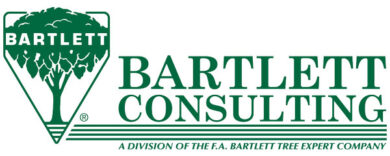5 Reasons Your Landscaping Business Needs Good Business Credit

By Gerri Detweiler
Like many business owners in the landscaping industry, Chancelor Edmonson came up through the ranks, learning as an employee of another firm, and later deciding to strike out on his own. The owner of American Tree, a three-year old firm based in Memphis, Tenn., one of his goals is to serve a wide variety of customers – not just those with deep pockets.
“I try to work within my customer’s budget,” he said. Indeed, a former client who suggested speaking with Edmondson for this article raved about his affordable pricing, describing him as a “do a lot with very little” type of person.
But, like any business, American Tree can’t serve customers if it doesn’t meet its own financial goals. That means he must not only do a great job helping customers keep their trees healthy, but he must make sure his business is financially healthy as well.
Good credit is one sign of financial health. But nearly three-quarters of small business owners don’t know their business has its own credit reports and credit scores, or how to check them.
Here are 5 reasons your landscaping business needs good business credit.
- Improve cash flow
The median small business in America has average daily cash outflows of $374 and average daily cash inflows of $381, according to research by JP Morgan Chase. That doesn’t leave a lot of wiggle room, financially speaking. A slow-paying client or a job that requires more labor or equipment than projected can quickly throw the business into a cash crunch.
Strong business credit can help the owner negotiate terms with vendors so they don’t have to pay for supplies they need to complete a job up front. An easy place to start building business credit is through vendors that offer net-30 terms, allowing the business owner to purchase supplies and pay for them within 30 days. Vendor accounts that report to business credit, paid on time, can go a long way toward building solid business credit.
- Get better financing
Edmonson points out that getting the equipment he needs can be costly. He currently rents most of the equipment he needs, such as stump grinders or buckets, though he has purchased trailers, and is slowly acquiring more equipment. “It can cost $1,500 to $1,800 just to climb the trees,” he said, referring to the ropes and climbing gear required.
Owning equipment is often economical in the long run, but given some of the price tags involved, many firms find it necessary to finance at least some of their equipment and acquire more as time goes on. Working capital loans, equipment leases, and lines of credit can be useful when a business wants to expand.
A bank loan is considered the gold standard in terms of offering the lowest interest rates. Most banks require personal guarantees, and will check the owner’s personal credit. They may review business credit reports from agencies such as Dun & Bradstreet, Equifax, Experian or other sources. In addition, SBA-guaranteed loans in the popular 7(a) program will pull a business credit score called the FICO SBSS credit score to prescreen applications. This score uses data from the owner’s personal credit, as well as business credit to create a single credit score. A score of at least 140 out of 300 is required to pass the prescreen, and many lenders want to see scores of 160 or above.
- Qualify for better insurance
Insurance costs can quickly add up for any business, but especially for landscaping businesses where exposure for property damage and liability can be significant. A landscaping business may need any or all of the following types of coverage:
- Commercial vehicle insurance
- Commercial property/business owner’s policy
- Commercial general liability insurance
- Commercial umbrella insurance
- Professional liability insurance
- Inland marine insurance
- Worker’s compensation
Small business owners don’t often realize that insurance underwriting may involve credit checks of the owner’s personal credit, business credit, or both. Red flags such as collection accounts, judgments or tax liens against the owner or the business may make insurance more expensive or even out of reach.
- Land larger clients
One way to significantly grow your business is to participate in the multi-billion dollar government contracting or commercial landscaping markets. To do that, your business must demonstrate it is financially capable of completing larger jobs.
Business credit may play a role in these opportunities in several ways:
- You’ll need a D-U-N-S number to bid on federal government contracts, and you may need it to bid on state or local contracts as well. This number identifies your business in the Dun & Bradstreet credit data system.
- These contracts may involve a review of your business credit reports, and negative items such as collection accounts or judgments may mean you lose your bid.
- Your business may have to get bonded or meet specific bonding requirements, which also typically require a D-U-N-S number and requires your business to meet certain financial requirements.
When it comes to bonding, requirements vary. “The state of North Carolina requires landscaping companies to get a license and permit bond designed to protect the state or municipality and the consumer,” said Jon Gottschalk, educational outreach director for SuretyBonds.com.
Bidding on government contracts for more than $100,000 requires a bid bond. If the firm wins the bid on a project worth $100,000 or more, it will be required to get a contract or performance bond guaranteeing a certain project is completed to all standards set forth when the initial contract is drawn up, Gottschalk explained. “The successful bidder will also be required to obtain a payment bond to protect those supplying the labor and material — such as subcontractors — as outlined in the contract,” he said. “The requirement for contractors to obtain performance and payment bonds for government projects was established by the Miller Act.”
This often means applying for more than one bond. “The license and permit bond does not replace the performance and payment bond requirement, as performance and payment bonds are for a specific project,” said Gottschalk.
Credit will play an important role in obtaining a bond that requires underwriting. But, at least in the case of SuretyBonds.com, “it’s not a hard credit pull that will hurt your score,” said Gottschalk.
It’s worth noting that any company can check your business credit, without your knowledge or permission and, perhaps as a result of that, credit inquiries are generally not a factor in business credit scores.
- Create an exit strategy
A financially healthy business is more valuable to a prospective buyer. Whether you hope to sell your business eventually to employees, a family member, or anyone else, strong business credit will make it that much more attractive.
The business credit rating you’ve built can remain with the business and can make it easier for your buyer to get financing from traditional or alternative sources. That, in turn, can help you avoid the risk that goes with a sale that is tied exclusively to seller financing.
Gerri Detweiler is a business financing and credit expert with more than 20 years of experience guiding individuals through the confusing world of credit. Gerri serves as the Director of Education at Nav, an online platform giving business owners free access to their business credit reports.
Photo Credit: welcomia/iStock



